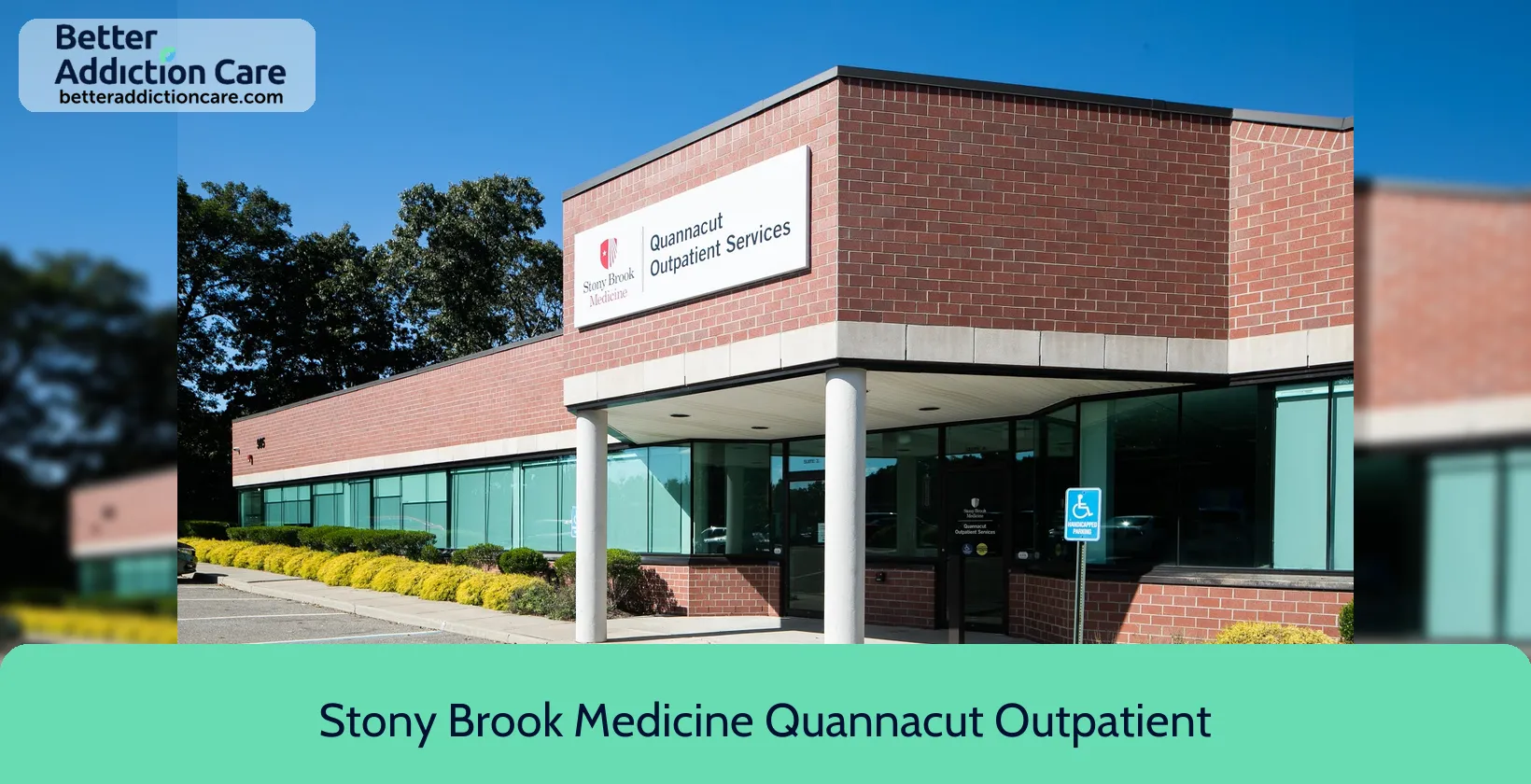Family Service League

Overview
Family Service League is a mental health treatment center for people seeking treatment near Suffolk County. As part of their treatment modalities for recovery, Family Service League provides couples/family therapy, cognitive behavioral therapy, and integrated mental and substance use disorder treatment during treatment. Family Service League is located in Riverhead, New York, accepting medicaid for treatment.
Family Service League at a Glance
Payment Options
- Medicaid
- Cash or self-payment
- Aetna
- Blue Cross and Blue Shield Association
- Cigna
Assessments
- Screening for tobacco use
- Comprehensive mental health assessment
- Comprehensive substance use assessment
Age Groups
- Young adults
- Adults
- Seniors
Ancillary Services
- Assertive community treatment
- Case management service
- Court-ordered outpatient treatment
- Family psychoeducation
- Psychosocial rehabilitation services
Highlights About Family Service League
6.76/10
With an overall rating of 6.76/10, this facility has following balanced range of services. Alcohol Rehabilitation: 8.00/10, Drug Rehab and Detox: 6.00/10, Insurance and Payments: 6.67/10, Treatment Options: 6.36/10.-
Alcohol Rehabilitation 8.00
-
Insurance and Payments 6.67
-
Treatment Options 6.36
-
Drug Rehab and Detox 6.00
Accreditations
SAMHSA certification for opioid treatment program (OTP):
SAMHSA's Opioid Treatment Programs (OTP) Accreditation is a rigorous recognition process, signaling an OTP's commitment to high-quality care for those with opioid use disorders. It assures patients, families, and the community that the program adheres to evidence-based practices, maintains a safe environment, and employs qualified staff. This accreditation represents a commitment to addressing the opioid epidemic and promoting recovery, symbolizing quality and accountability in opioid addiction treatment.
Treatment At Family Service League
Treatment Conditions
- Alcoholism
- Mental health treatment
- Substance use treatment
- Co-occurring Disorders
Care Levels
- Outpatient
Treatment Modalities
- Couples/family therapy
- Cognitive behavioral therapy
- Integrated Mental and Substance Use Disorder treatment
- Smoking/vaping/tobacco cessation counseling
Ancillary Services
Languages
- Sign language services for the deaf and hard of hearing
Special Programs
- Clients with co-occurring mental and substance use disorders
- Criminal justice (other than DUI/DWI)/Forensic clients
- Persons 18 and older with serious mental illness (SMI)
Get Help Now
Common Questions About Family Service League
Contact Information
Other Facilities in Riverhead

6.71

7.27
DISCLAIMER: The facility name, logo and brand are the property and registered trademarks of Stony Brook Medicine Quannacut Outpatient Services, and are being used for identification and informational purposes only. Use of these names, logos and brands shall not imply endorsement. BetterAddictionCare.com is not affiliated with or sponsored by Stony Brook Medicine Quannacut Outpatient Services.
